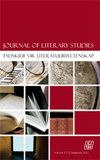Intensification of Biopolitical Strategies: Governing Bodies’ Treatment of Apocalyptic Zombification in Max Brook’s World War Z
IF 0.1
4区 文学
0 LITERARY THEORY & CRITICISM
引用次数: 0
Abstract
Summary In Max Brook’s World War Z: An Oral History of Zombie War, the zombie world introduces moments of crisis in the governing system of world powers. Although some have read these moments as being capable of shattering conventional governance systems, the present study sides with the pessimist critics who believe that even in such apocalyptic set of circumstances, governing systems would always regulate their governance through utilising biopolitical strategies. The study divides the novel’s narrative progression into pre-apocalyptic, apocalyptic and post-apocalyptic phases so that governing bodies’ unique biopolitical strategies could be analysed in each phase. Through utilising Sherryl Vint’s conceptualisation on bio-politics and neo-liberalism, the study concludes that a series of militaristic, medical and economic miscalculations and stereotypes – which constitute the biopolitical phase of letting people die/making people live in the novel – regulate the governing bodies’ dominance in the pre-apocalyptic phase, while in the apocalyptic and zombie phase, spatial striation and its dependence on safe/unsafe and inside/outside binaries – that comprise the biopolitical phase of making people die/letting people live – become the survival key for the remaining governing bodies. In the post-apocalyptic world, a more tamed and calibrated version of conventional governance and their governing problems would be perpetuated, and no genuine change or acknowledgement of governance complicity in the transpiration of the apocalypse would emerge.生命政治策略的强化:马克斯·布鲁克《僵尸世界大战》中管理机构对末世僵尸化的处理
在马克斯·布鲁克的《僵尸世界大战:僵尸战争的口述历史》中,僵尸世界引入了世界大国统治体系中的危机时刻。尽管有些人认为这些时刻能够粉碎传统的治理体系,但目前的研究站在悲观主义者的一边,他们认为,即使在这种世界末日的环境中,治理体系也总是会通过利用生物政治策略来调节其治理。该研究将小说的叙事进程分为《启示录》前、《启示录》和《启示录》后三个阶段,以便在每个阶段分析统治机构独特的生物政治策略。通过利用雪莉·文特对生命政治和新自由主义的概念化,该研究得出结论,一系列军国主义、医学和经济上的误判和刻板印象——这些构成了小说中让人死亡/让人活下来的生命政治阶段——规范了管理机构在前世界末日阶段的主导地位,而在世界末日和僵尸阶段,空间分割及其对安全/不安全、内部/外部二元结构的依赖——构成了让人死/让人活的生命政治阶段——成为剩下的管理机构的生存关键。在世界末日后的世界里,传统治理及其治理问题的一种更为驯服和校准的版本将永远存在,不会出现真正的变革,也不会出现对世界末日的治理共谋的承认。
本文章由计算机程序翻译,如有差异,请以英文原文为准。
求助全文
约1分钟内获得全文
求助全文
来源期刊

Journal of Literary Studies
Multiple-
CiteScore
0.50
自引率
0.00%
发文量
0
期刊介绍:
The Journal of Literary Studies publishes and globally disseminates original and cutting-edge research informed by Literary and Cultural Theory. The Journal is an independent quarterly publication owned and published by the South African Literary Society in partnership with Unisa Press and Taylor & Francis. It is housed and produced in the division Theory of Literature at the University of South Africa and is accredited and subsidised by the South African Department of Higher Education and Training. The aim of the journal is to publish articles and full-length review essays informed by Literary Theory in the General Literary Theory subject area and mostly covering Formalism, New Criticism, Semiotics, Structuralism, Marxism, Poststructuralism, Psychoanalysis, Gender studies, New Historicism, Ecocriticism, Animal Studies, Reception Theory, Comparative Literature, Narrative Theory, Drama Theory, Poetry Theory, and Biography and Autobiography.
 求助内容:
求助内容: 应助结果提醒方式:
应助结果提醒方式:


